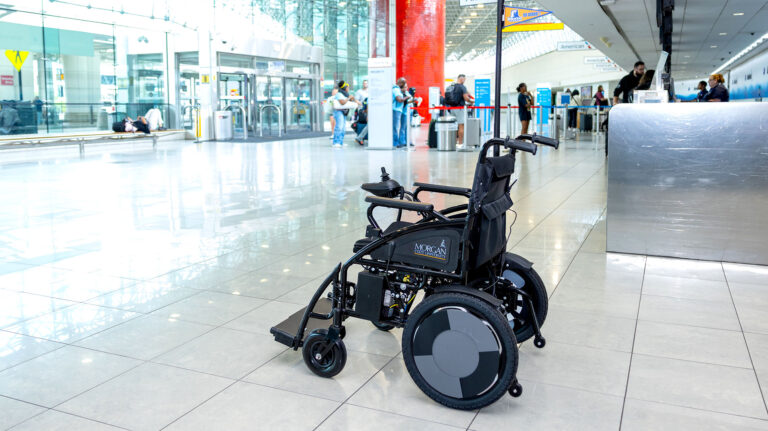A demonstration of a new autonomous wheelchair to improve passenger accessibility through terminals and other busy places has been held at Baltimore/Washington International Thurgood Marshall Airport (BWI Airport) as part of a pilot program. The adaptive wheelchair is designed to respond to user commands intuitively via a smartphone application.
The demonstration marks the culmination of more than five years of research and development conducted at Morgan State University and in designated areas of BWI Airport.
The autonomous wheelchair was developed by modifying a conventional powered wheelchair and equipping it with additional instruments that provide perception, navigation and steering capabilities similar to those used in autonomous vehicles.
Researchers installed cameras and lidar sensors for perception and a general-purpose single-board computer for processing.
Passengers can summon the autonomous wheelchair through an app by scanning the QR code from the designated areas. They need only to register or log in (if they are already registered) to use the app. The wheelchair will come to their location, and after authentication, the passenger can sit on the wheelchair and enter the location that they would like to go to. The wheelchair will take them to their destination.
During the demonstration, student operators guided the wheelchair via mobile commands, from door 8 on the terminal’s upper level to the ticket counter. From there, the student researchers directed the wheelchair along a predefined route through security checkpoint C, where it successfully underwent security screening.
In related news, JFKIAT, the operator of Terminal 4 at John F Kennedy International Airport, has begun piloting what it states is the world’s first mobility cart tracking solution, developed to improve the passenger experience. Read the full story here.

